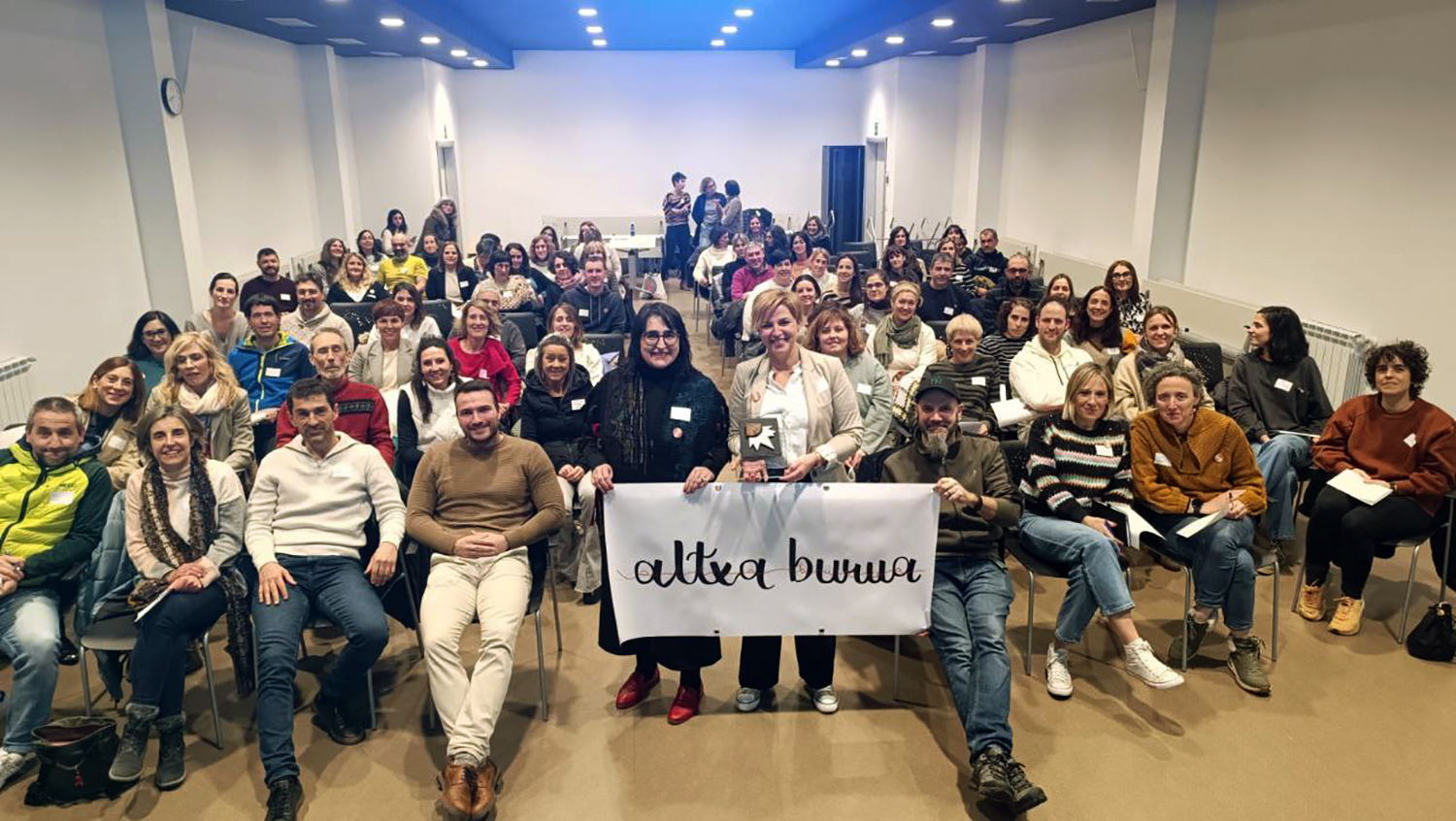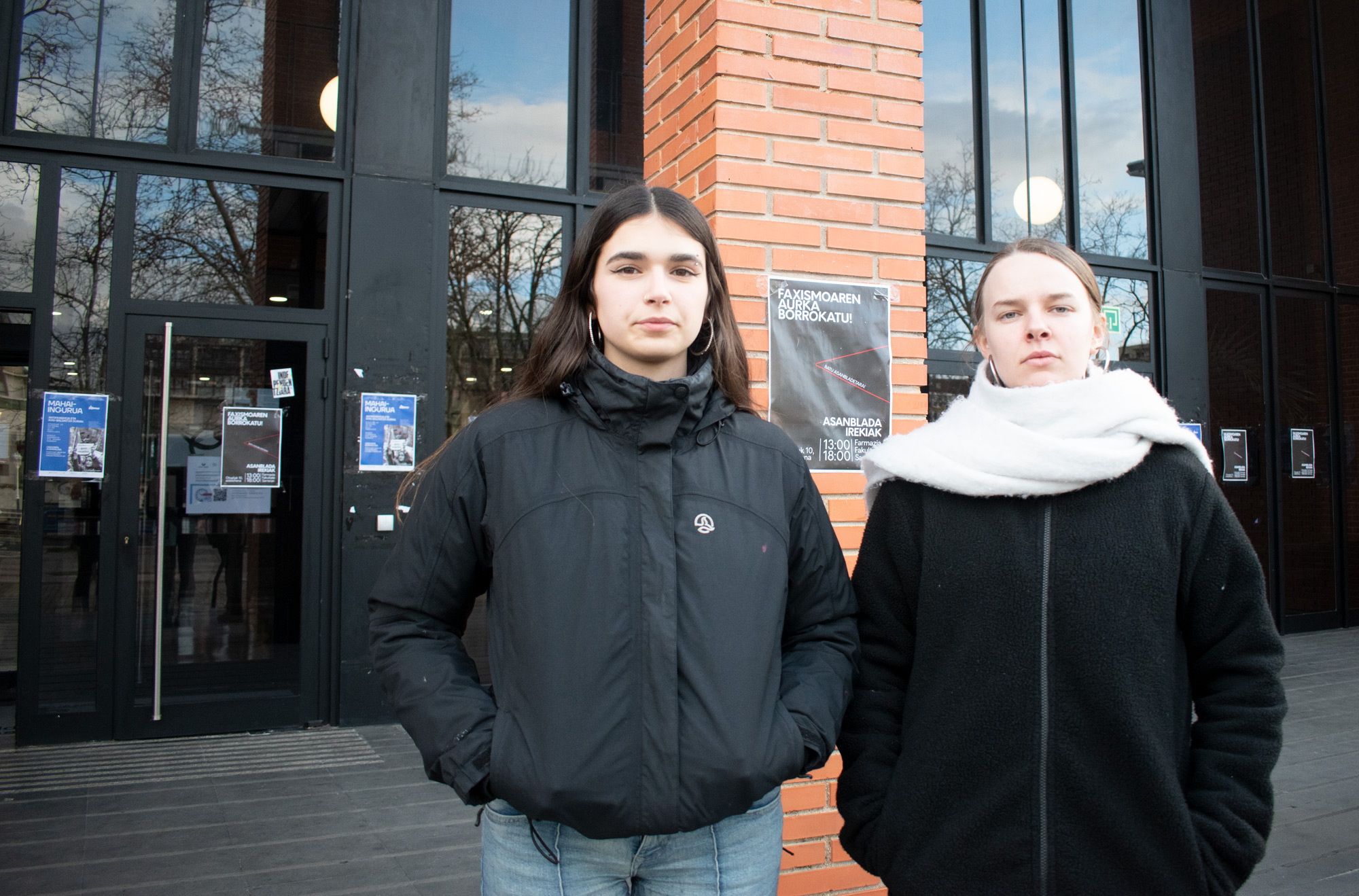"Changing the school patio has caused girls to gain centrality"
- Haizea Egiarte analyzes the influence that the modification of the exterior space of the center has had on children and primary students, and shows how it has affected the relations, conflicts and attitudes among students, under the direction of Asier Huegun. And it also shows to what extent the resistance of the process has been overcome: the difficulty of caring for children in the new patio and the initial desire to completely eliminate football from the patio. "If the school has to break some inertia of society, why not consider taking away football? ". At the end of the article you will find the images of the new patio.

Taking coeducation and nature as its axis, they transformed the outer space of the center into the ikastola Kurutziaga of Durango. Haizea Egiarte has researched the impact of the opening of the new patio in 2018, with the opinion of 81 students, parents and teachers of the school. In short, “children spend at least 30 minutes outside the school every day, 525 hours during the course,” he stressed.
Why is outer space important?
Haizea Egiarte: As teachers we often give importance above all to questions within the classroom, but outer space is also part of the school, we cannot forget that the exterior spaces and children develop their autonomy, psychomotor… also through play. When they go outside, they decide how to play, what, using imagination, beyond the rules set by adults, and they're also learning freely and unconsciously.
Moreover, inside and outside the room is a continuum, it is possible to give educational use to the area outside the four walls, and it is not possible to restrict teaching inside the room and only the space you take care of having a patio. When it comes to the class we can consider the exterior, organize some activity with a didactic objective in the courtyard or neighborhood of the school, as it is a very enriching resource, of course, if we have nature in our environment.
Asier Huegun: Unlike what happens inside the room, we often do not recognize the educational function of the exterior space and it remains uncontrolled, many stereotypes and social trends are reproduced, and therefore it is important to pay attention to these spaces.
Do we still have rigid or increasingly wealthy grey outer spaces?
Egiarte: I would say that teachers are aware of the importance of outer space, but personal and economic resources are needed to transform them and it would be important for public schools to channel those changes. What do teachers do? To adapt to what they have, projects, methodologies, etc., but being aware that other uses can be given to space.
Beyond school, the new parks that they have built in my country have logs, various devices to work balance, infrastructures with different materials… and when I was young, they had swings and little more. That is, these things are taken into account when designing new spaces, but it is also important to change what we have, even in schools.
Huegun: Little by little, the transformation of spaces in educational centers is beginning to give importance to the organization of the space and to take into account the educational function of the space, especially in Children and Primary, but they do not reach the ESO, for example.
"Ages mix more and care for each other. The teachers discover that their care function is not so important, that the patio has become an interesting space for observation"
At ikastola Kurutziaga they have had the opportunity to redesign the outer space.
Egiarte: Concern focused on two aspects: co-education and nature. For example, they clearly saw that the football field they had in the middle of the patio ate everything, the boys played football, and the girls moved in the peripheries of the patio. From there, they have made an immense patio, but the centers that do not have it should not limit the exterior space to the patio, it should be opened to the people: if you have a river, a meadow… why not leave school and take advantage of it? It's not always easy, but it's worth trying.
Huegun: Indeed, today we have separate and fragmented spaces and spaces, but the center should form community in the neighborhood and in the village, spaces should interact.
From co-education and nature, it was decided to transform the outer space of the ikastola. You say that the project that has lasted four years had two main resistances. One, on the part of the teachers, because they feared that when opening the space it would be more difficult to care for and control the children.
Egiarte: With the extension of the patio, they thought there could be more conflicts, and they thought about establishing a reinforcement for the yard care, but they realized that no, with more spaces and possibilities, that children create cooperative games, that the castle or whatever, for example, are put together, and the disputes have been reduced. The change of space has created new relationships and the supply of games and opportunities in the place where football was the king has allowed both to work together. For example, in these free play spaces the ages are more mixed, children of different ages develop perfectly helping the older ones to the younger ones, spreading their imagination to the big ones… Seeing how they care for each other is nice, how they help and wait depending on the skills and difficulties each one has to climb the hill. The teachers discover that their care function is not so important, that the patio has become a very interesting observation space to take ideas. Are you enjoying the river? Let's do a project around the river.
Huegun: Because care is not only vertical (which the teacher takes care of the students), horizontal care is also important, and since the transformation of space has favored coexistence, I would also highlight the benefit of inclusion: children with very diverse abilities and desires share the same space. On the contrary, in traditional spaces the same is often not the case and there are exclusive tendencies, among other things because of their capacities.
The project had a second resistance: some quickly faced the space without football. Finally, the ikastola decided to remove the football field located in the center of the patio, but keep the football field located in a corner.
Egiarte: Perhaps in the future there will be some college without football field, but at the moment I do not know any. The initial idea of the project was to eliminate both the football field and the football zone, because whoever wants to play out of school all the football he wants, so why not withdraw it? But resistance came mostly from parents. And I get the feeling that if they had completely taken away football, a lot of kids would protest at first, but then they would adapt easily and they would play other games. But ikastola is part of a community and in the face of the parents' demands it was decided to keep the habit.
Huegun: Social inertias penetrate everywhere and football is an example: “How are we going to leave our child without playing the main sport?” It would be a real revolution to completely abolish football in school, but in our imagination we have nailed that schools have their own football field and it doesn't have to. If the school is to be the place to break down certain social inertias, such debates should be held, because football is already enough outside school.
"In the green zone, children play together, without prejudice and in different things; other relationships are developed"
Despite the transformation of the patio, the vast majority of boys and a few girls use the football field more, according to the study. If you're a kid, do you have to play soccer so you don't forget?
Egiarte: The research gathers the responses of 5th grade students (approximately 10-11 years old) and perhaps this age may be significant. I don't know if you think that if you don't play football, you're going to stay out of the team, but it's true that you also have to encourage them to try other activities beyond the design of outer space, which is not bad if, as Asier says, we want to break social inertia. In this sense, during the COVID-19 season, spaces alternated in groups every day, and many guys saw that they could do activities other than football, that soccer is not the only option, and on the contrary, it encouraged girls to play football when they were given the football field.
Another interesting thing that has been done in Kurutziaga is that the areas are different so that they do not have a specific and unique use. I would say that the futbitus track is still called that, but imagine it being named theater, because even if the children would start making theater there. If you don't limit spaces to one action, open the door to multiple uses.
It seems that several spaces or activities have gender. Are other relationships and attitudes observed in areas where no genera are assigned (open fields, hills, grass stands, etc.)? )?
Egiarte: Yes, for example in the green area it mentions. The most well-known referents in football are men, who have somehow internalized that it's a sport for boys, but keeping the balance on the trunk, getting off the slide or making towers does not depend on male or female referents and playing together without prejudice. If 5th graders are better at football than girls in general, they've seen that many girls are better than boys at balancing games in other spaces. It's not about seeing what's best and staying above the other, but these spaces have also been the way to empower girls and reduce boys. In addition, they are undetermined spaces that allow us to work on many things. Today we are explorers and tomorrow we will do a cabin, there are no rules in other games and other relationships are developed.
Huegun: In addition, when the football field occupied the center, the centrality was held by the boys, and the change of space and the centralization of other activities has caused this hierarchy to change, that the girls gain centrality.
In fact, the space dedicated to free play is now the one in the middle of the patio, and it's the space most used by girls. However, the study says that the teachers have had to encourage the girls to “conquer” these spaces, so internalized in the periphery.
Egiarte: Because girls don't have a habit of taking the center. What have you done in Kurutziaga? We can't take away football, but at least we're going to move it, we're going to leave it on the edge, and those who want to jump on the rope don't have to make a skeleton, those who want to paint don't have to be on the edge, why not put in the middle yard? The research results indicate that there is still a long way to go for most boys and girls to play together, but that girls feel that the patio is also their own and that they can play in the center of the patio. In society, at parties… women have a tendency to be in the background, to have prominence men, because it has been so since childhood, but if from childhood the girls learn that the center is also theirs, that they can take centrality, they will take strength in the future to say “I am here and I am in the foreground”.
Nature gains presence in the new outer space. Has this influenced students?
Egiarte: Above all, it has been very enriching for children in Early Childhood Education and sees them exploring and playing in the sandy area or forest. One of the keys is that ikastola does not limit children to not enter the leash or in the river, they have catiuscos to go out to the patio and clothing to change them in case of fouling. Some parents complained that the kids got really dirty, but what has the design change been done for, if not to enjoy it? Aware of the rains raining in Euskal Herria, one of the challenges of ikastola is to go out to nature even when it rains. And they've also taken the opportunity to make the classroom in nature, sit on grads of grass and tell stories.
Huegun: The Ikastola faculty has shown that nature awakens creativity, that children use more resources to invent games, encourages collaboration and has an emotional impact. That is why it is important, in the line Haizea mentioned earlier, to go beyond school with students to the green areas of the area. In small towns it seems easier, it gets harder in the cities and neighborhoods we've created. And in Euskal Herria it rains a lot, a phrase that they use in Finland comes to mind: there is no bad time, but inadequate clothing.
.jpg)
.jpg)
Une delikatua igarotzen ari den zure lagun minak Taylor Swiften kontzertura joatea proposatu dizu, baina kide zaren elkarte ekologistak elkarretaratzea deitu du, abeslariak sortuko duen kutsadura salatzeko; nora joango zara? Dilema etiko horri erantzun diote gazteek, baita... [+]
Lau mila karaktere ditut kontatu behar dudana kontatzeko. Esan behar ditut gauzak argi, zehatz, soil, eta ahalko banu polit, elegante, egoki. Baga, biga, higa. Milimetrikoki neurtu beharra dut, erregelaz markatu agitazioa non amaitzen den eta propaganda non hasi. Literarioki,... [+]
The time has come for us to enrol in schools in the Basque Country for the 2025-26 academic year, and in many homes the youngest of the household will take a new step soon, in September, which is schooling. Proud of the Basque Public School The members of Topagune are firmly... [+]
Since the adoption of the new Education Law for Álava, Bizkaia and Gipuzkoa, we are hearing/reading again and again that education will be free from now on. We have listened to different actors, including the Department of Education, and in the interviews we offer to the media,... [+]
There are many ways to gain power; not all are beautiful. There are those who want to divide the power and the responsibility that it entails with it, who seek authority. Others have a lot of respect for him and the fact that each step is so measured makes them unable to make a... [+]
On February 3rd, the time has begun to pre-enroll our children and young people in schools, and as every year we would like to remind you why we do not think it is a good idea to enroll them in religion. Last year we finished the article saying that “many of you will be... [+]
From the Association of Parents of the Instituto Arratia Small Tram we want to encourage reflection on the use of screens in the learning community.
Lately there is a lot of concern about the impact of screens on children and adolescents. This responsibility extends from... [+]
There are concepts that appear everywhere during certain periods, which also become mantras. They appear to us in a positive and necessary way, without too much debate and without thinking about them. It seems to me that one of these mantras is internationalization, which has... [+]









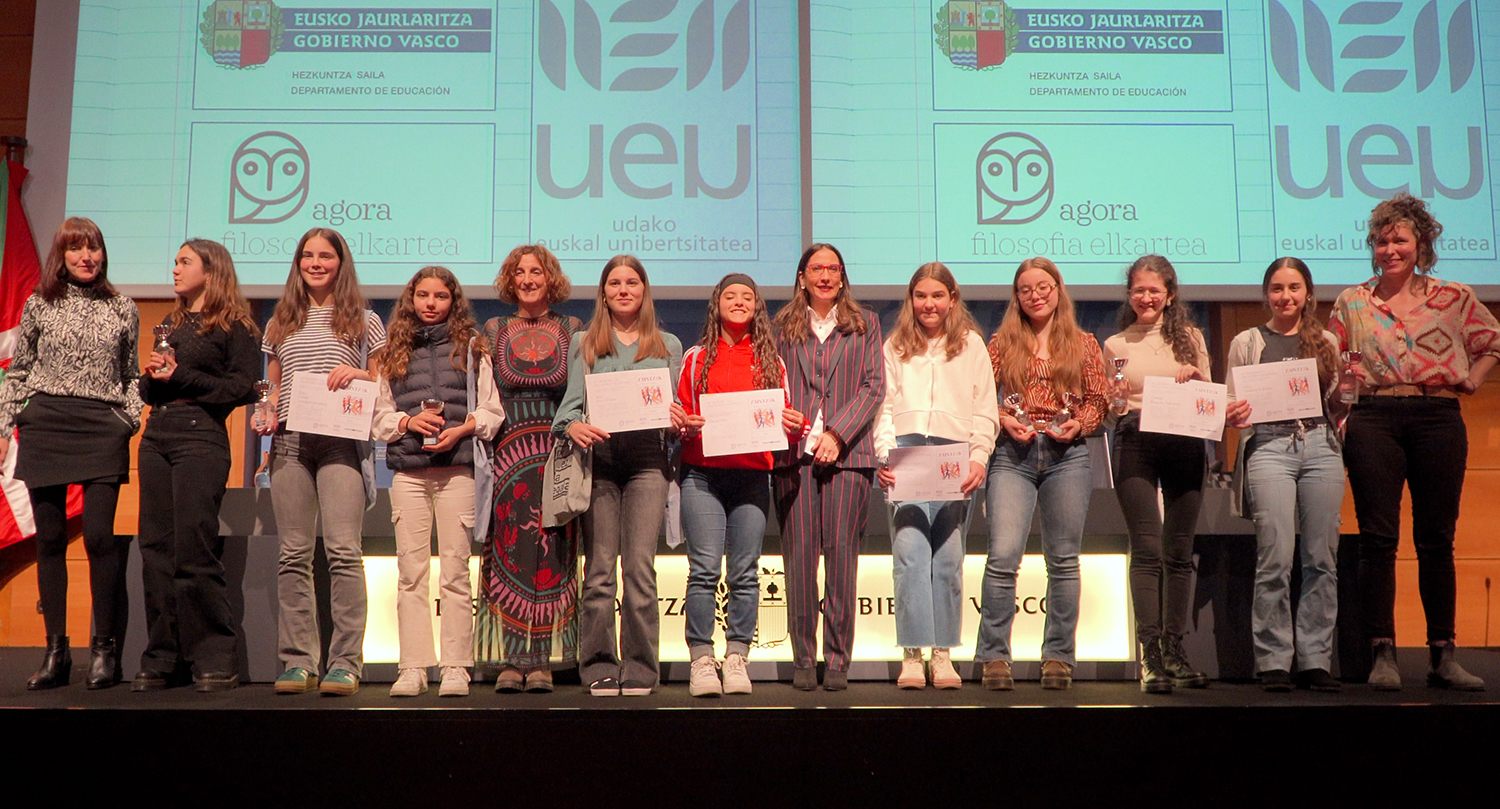


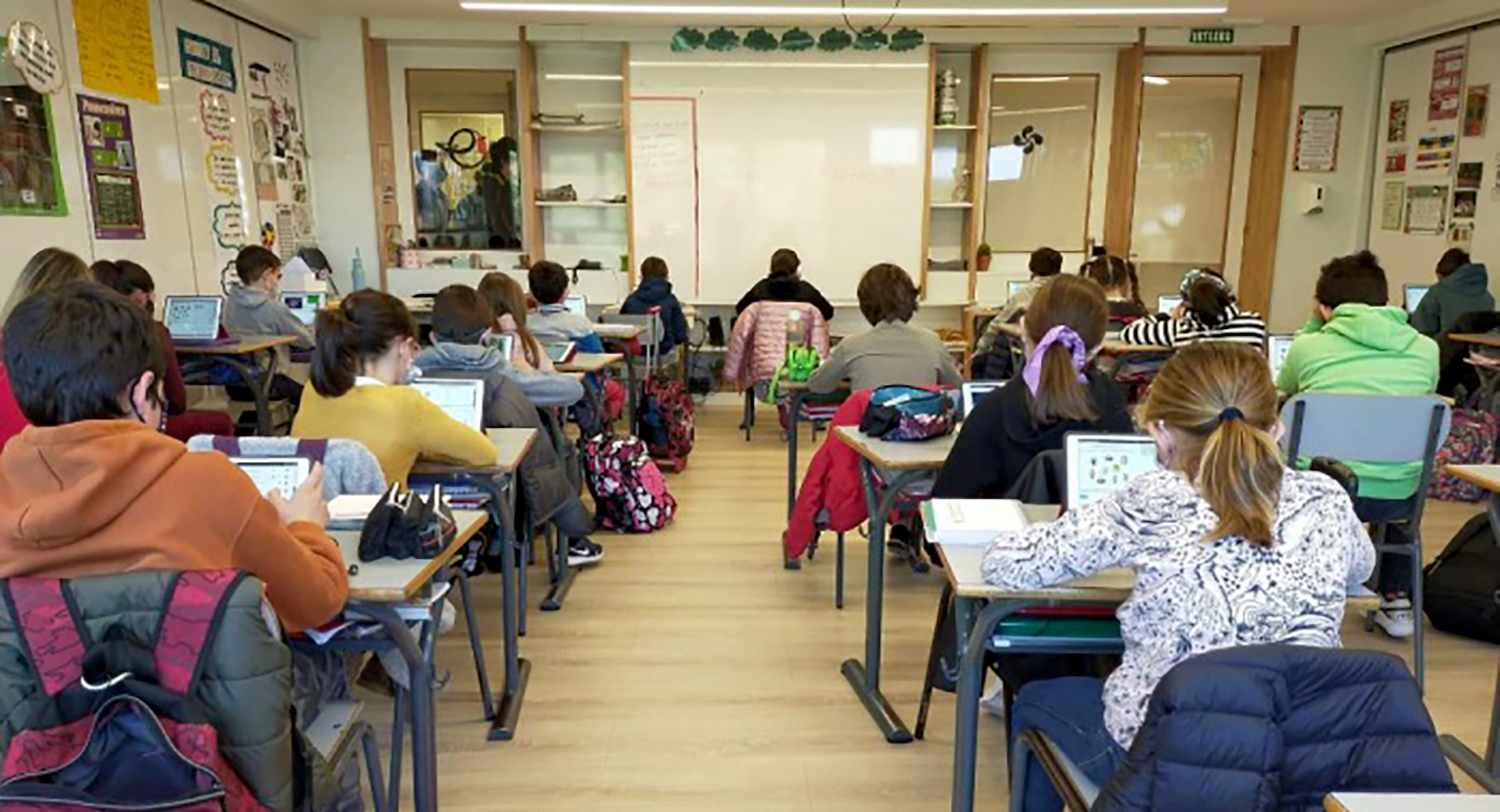

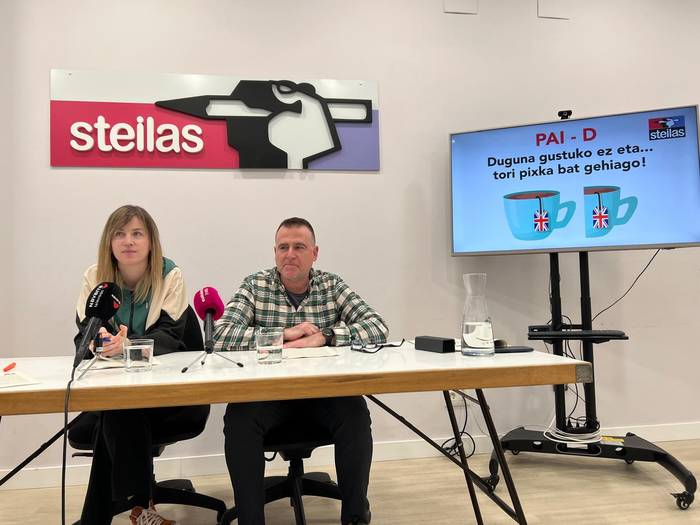
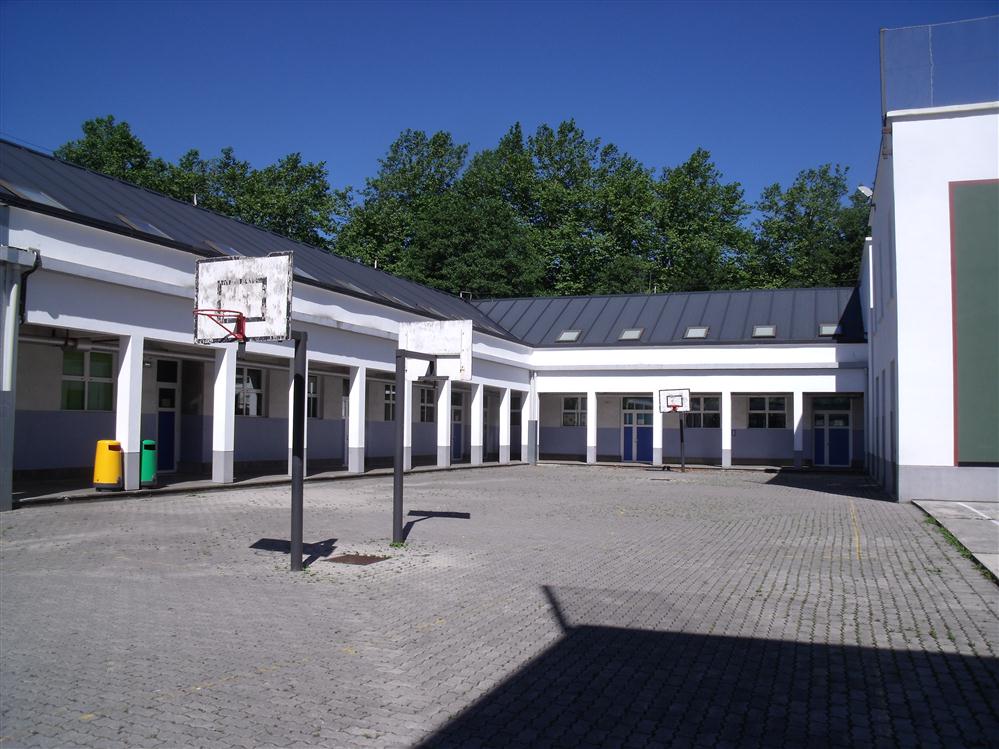
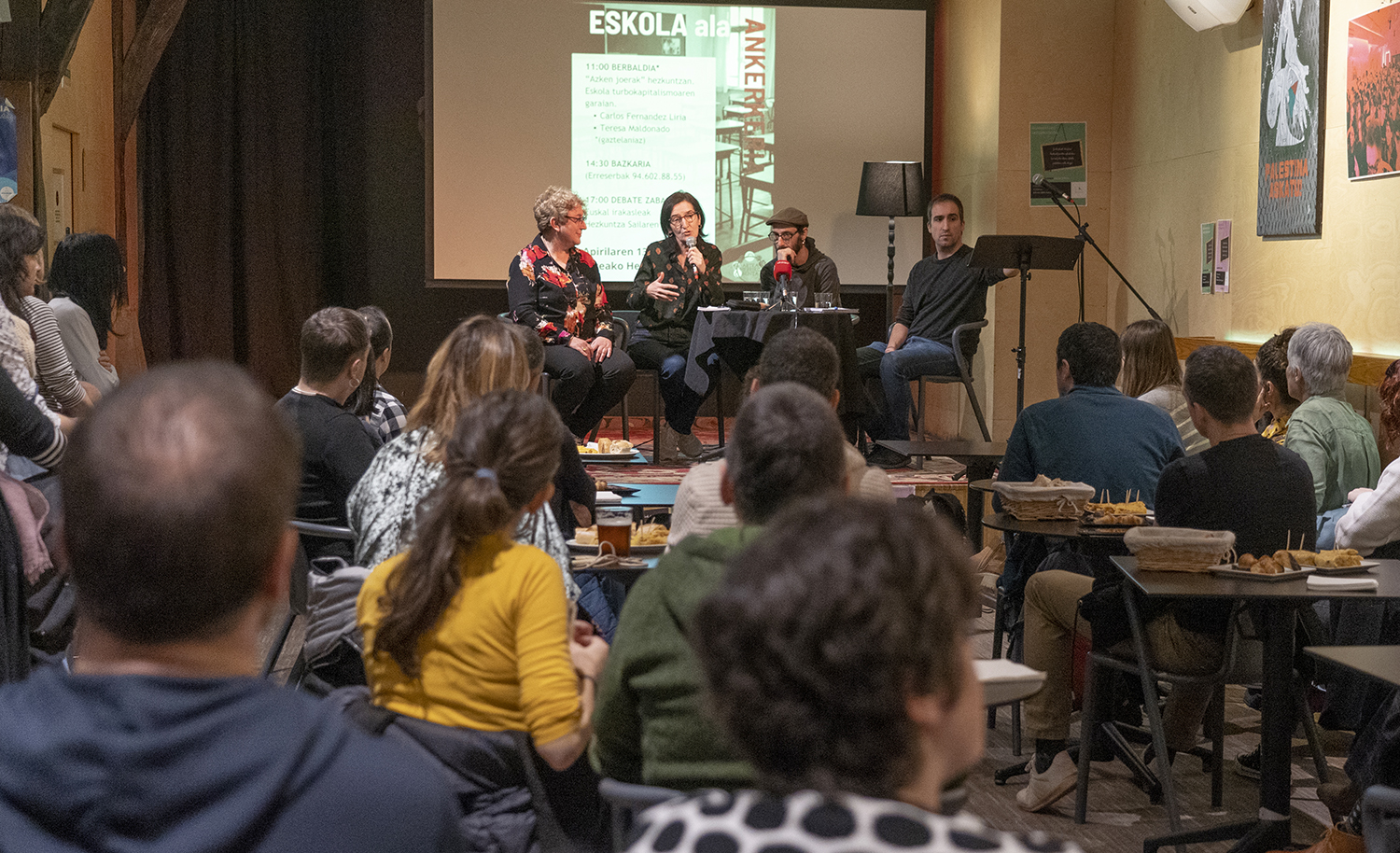
_2.jpg)
